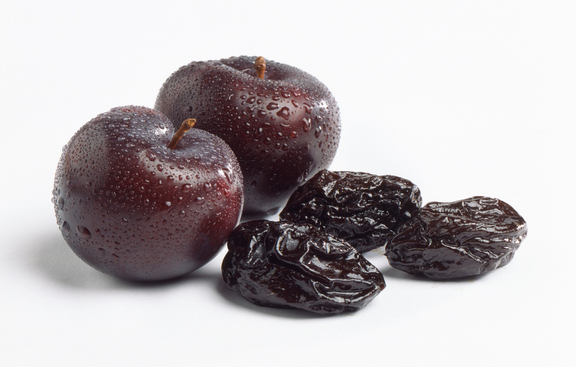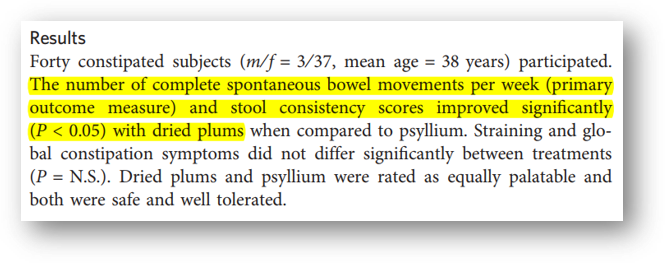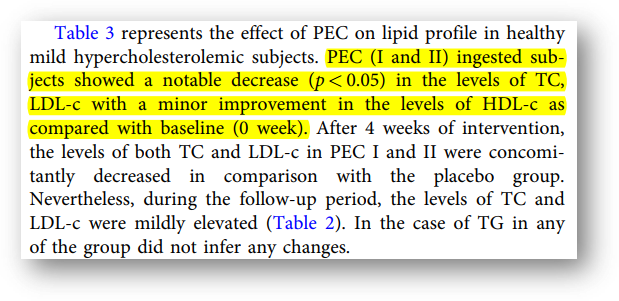Solving constipation problems, what are the other benefits of prune?
1. Improve the frequency of spontaneous bowel movements and stool consistency2. Reduces
total cholesterol and LDL cholesterol3. Prevents bone loss after menopause

Hello. I'm a pharmacist Jinny.
While working in a pharmacy, I often read reviews from people who were suffering from constipation that they drank prune juice and found it more effective than constipation medicine. Of course, prunes are a type of dried fruit that is dried from prunes, not medicines, but they contain a lot of soluble and insoluble fiber and sorbitol, so many people are satisfied after eating them. In particular, sorbitol has a sweet taste, but unlike glucose, it does not raise blood sugar and absorbs water, which helps the stool pass smoothly.
However, research has shown that prunes have a variety of benefits other than bowel movements. Today, in this regard, we are going to find out the different benefits of consuming prunes through a paper.
Many of you probably know that dietary fiber intake can help with constipation. This is because fiber softens and bulks up stools, increasing the frequency of bowel movements and the amount of stool. Prunes are rich in a variety of dietary fiber.
In this regard, a paper was published in 2011 in Alimentary pharmacology and therapeutics that reported the results of improved spontaneous bowel movements and stool consistency when prunes were consumed in subjects with constipation [1].

LDL cholesterol burrows inside the blood vessel wall and causes various inflammatory reactions, and then clumps together like a lump and attaches to the blood vessel wall or thickens the blood vessel wall as a whole. When the blood vessel walls become thicker and the blood vessels narrow, the risk of exposure to various vascular diseases increases. In this regard, the polyphenols in prunes prevent cholesterol from being absorbed into the digestive tract and thus lower blood cholesterol levels.
In fact, a 2017 paper was published in Pharmaceutical biology that showed that total cholesterol and LDL cholesterol levels were reduced when prunes were consumed [2].

"Subjects taking Prune Essence Concentrate (PEC) showed significant reductions in total cholesterol (TC) and LDL-c levels, with a slight improvement in HDL-c levels compared to baseline (week 0)."
After menopause, there is more bone loss due to a decrease in estrogen, which increases the risk of developing osteoporosis. When the intake of minerals that make up bone is generally insufficient, the threat to bone health becomes even greater. Prunes are rich in vitamin K, potassium, magnesium, and boron, which are necessary for strong bones.
In this regard, a paper published in the Journal of medicinal food in 2019 reported that when postmenopausal women consumed prunes, bone resorption was reduced, which prevented bone loss [3].

"A decrease in C-telopeptide (CTX) values indicates a decrease in bone resorption, which is considered desirable. In the second phase, we suggested a desirable trend of CTX decline among those consuming six prunes (DP)."
Today, we've looked at the various benefits of consuming prunes. However, you should be careful not to eat too much at once. This is because the fiber and sorbitol, which are abundant in prunes, can cause diarrhea or bloating. Therefore, it is recommended to start with a small amount and gradually increase the amount.
I hope you have a healthy day in body and mind. It was Jinny.
[1] Attaluri, A., Donahoe, R., Valestin, J., Brown, K., & Rao, S. S. (2011). Randomised clinical trial: dried plums (prunes) vs. psyllium for constipation. Alimentary pharmacology & therapeutics, 33(7), 822–828.
[2] Chiu, H. F., Huang, Y. C., Lu, Y. Y., Han, Y. C., Shen, Y. C., Golovinskaia, O., Venkatakrishnan, K., & Wang, C. K. (2017). Regulatory/modulatory effect of prune essence concentrate on intestinal function and blood lipids. Pharmaceutical biology, 55(1), 974–979.
[3] Al-Dashti, Y. A., Holt, R. R., Carson, J. G., Keen, C. L., & Hackman, R. M. (2019). Effects of Short-Term Dried Plum (Prune) Intake on Markers of Bone Resorption and Vascular Function in Healthy Postmenopausal Women: A Randomized Crossover Trial. Journal of medicinal food, 22(10), 982–992.


![[Prune Benefits] 3 hidden benefits of prune, a natural constipation medicine](http://esther-mall.com/cdn/shop/articles/50.jpg?v=1734023443&width=480)

![[Hyaluronic Acid Benefits] 3 Benefits of Hyaluronic Acid, a Strong Moisturizing Factor](http://esther-mall.com/cdn/shop/articles/51.jpg?v=1734024366&width=480)